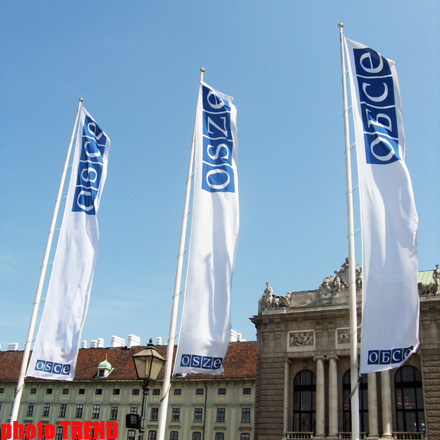Azerbaijan, Baku, June 12 / Trend, E.Tariverdiyeva /
One of Ireland's priorities during its presidency in the OSCE in 2012 is to achieve progress in the resolution of the Nagorno-Karabakh conflict, OSCE Chairperson-in-Office, Ireland's Deputy Prime Minister and Foreign Minister Eamon Gilmore said in an interview with NEWS.am.
"People living in these territories [Nagorno-Karabakh and surrounding areas occupied by Armenia], deserve peace and stability, but not brittle and unstable status quo," he said.
According to Gilmore, assistance is very important in resolving the Nagorno-Karabakh conflict.
"Our priorities are being developed for the entire year, so we will continue what we began even before our chairmanship in the OSCE. One of the reasons of my visit to Armenia and Azerbaijan is necessity to discuss ways of achieving a progress in resolving the Nagorno-Karabakh conflict with political leadership of these countries," Gilmore said.
He said during its presidency in the OSCE, Ireland managed to achieve some progress in the Transnistrian settlement process.
"I am very familiar with devastating cost of the conflict: not only those living near contact line, but all citizens suffer from it. My country also suffered from the conflict for a long time," Gilmore said.
OSCE Minsk Group co-chairs (France, Russia and USA) actively work on strengthening ceasefire regime and through negotiations seek to find a solution that is fully supported by the OSCE chairmanship, Gilmore said.
He underscored that the Irish experience shows that combination of steps taken in various spheres are needed to achieve a real progress.
"It has been almost six months since our presidency in the OSCE, and we pay great attention not only to perspectives of the next six months of the presidency, but the future activity of our organization as a whole. We closely cooperate with Ukraine - next president of the OSCE, as well as with future Swiss and Serbian presidencies by developing priorities for 2015," Gilmore said.
He underlined that creating an atmosphere of trust is the only way to achieve a sustainable resolution of the Nagorno-Karabakh conflict.
"It is necessary to enhance direct contacts between people and make efforts to preserve places of worship, cultural facilities and cemeteries," Gilmore said.
The conflict between the two South Caucasus countries began in 1988 when Armenia made territorial claims against Azerbaijan. Armenian armed forces have occupied 20 per cent of Azerbaijan since 1992, including the Nagorno-Karabakh region and seven surrounding districts.
Azerbaijan and Armenia signed a ceasefire agreement in 1994. The co-chairs of the OSCE Minsk Group - Russia, France and the U.S. - are currently holding peace negotiations.
Armenia has not yet implemented the U.N. Security Council's four resolutions on the liberation of the Nagorno-Karabakh and the surrounding regions.






